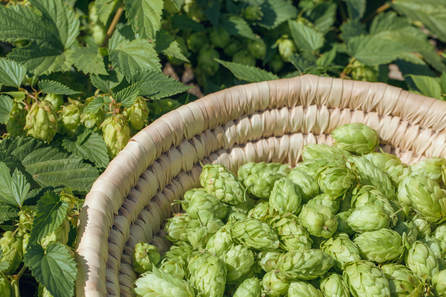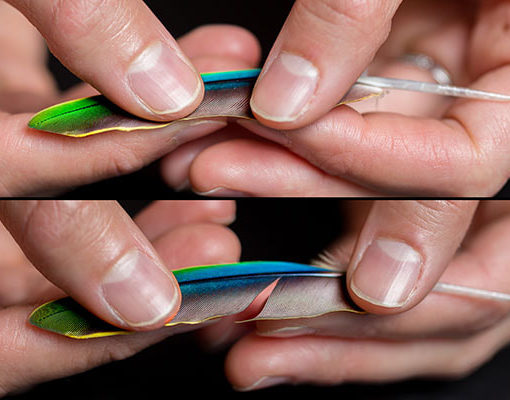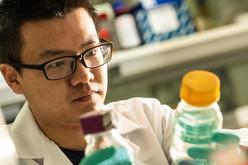Making Hoppy Beer Hoppier

The earliest documented evidence of hop use in beer comes from a 12th-century nun and mystic, Abbess Hildegard of St. Ruprechtsberg (Hilde),(1) who preached about “the beauty of greenness,” and was considered the founder of scientific natural history in Germany.(2,3)Perhaps Hilde observed that hops kept the beer fresh longer and balanced out the residual sugars from the grains that did not ferment into alcohol.(4)
In present day, dry-hopping, or adding hops to beer during or after fermentation has become common practice to add flavor and essence to the beer.(5) However, the practice of dry hopping can sometimes cause the alcohol content to increase, and high pressure from the process can sometimes cause beer bottles to break.(6)
Although hops were previously thought to be inert ingredients, recent evidence suggests they contain biologically active compounds that restart the fermentation process and alter the final composition of beer.(6)
To better understand and identify the source of these changes, researchers Thomas Shellhammer and Kaylyn Kirkpatrick of the Department of Food Science & Technology, dry-hopped a commercial beer and showed this boosted its carbon dioxide (CO2) and alcohol content, while lowering its carbohydrate content.(6)
They found that the activity of starch-degrading enzymes associated with hops — including amyloglucosidase, α-amylase, β-amylase and dextrinase — altered the composition of carbohydrates in the beer, shifting the balance to more fermentable sugars and thus increasing the alcohol content. They also found that the amount of hops used, the duration, and temperature of the process, and whether or not yeast was present affected the results.(6)
So hoppy brewers may soon be even hoppier, because the research is now published in ACS’ Journal of Agricultural and Food Chemistry and and may soon help the beer industry to increase safety and quality.(6)
Hilde would be proud.
References
- Hornsey, Ian S. (2003). A History of Beer and Brewing. Royal Society of Chemistry. p. 305.
- St Hildegard of Bingen (2) 1098-1179AD, abbess and mystic. Accessed September 22, 2018.
- Jöckle, Clemens (2003). Encyclopedia of Saints. Konecky & Konecky. p. 204.
- Hooked on Hops. What the hell does hoppy even mean? Accessed September 22, 2018.
- Kirkpatrick, KR and Shellhammer, TH. Evidence of dextrin hydrolyzing enzymes in cascade hops (Humulus lupulus). J Agric. Food Chem. 2018;66(34):9121-9126.
- ‘Hoppy’ beer without exploding bottles and too much alcohol. ACS News Service Weekly PressPac: Wed Sep 19, 2018. Accessed September 22, 2018.



